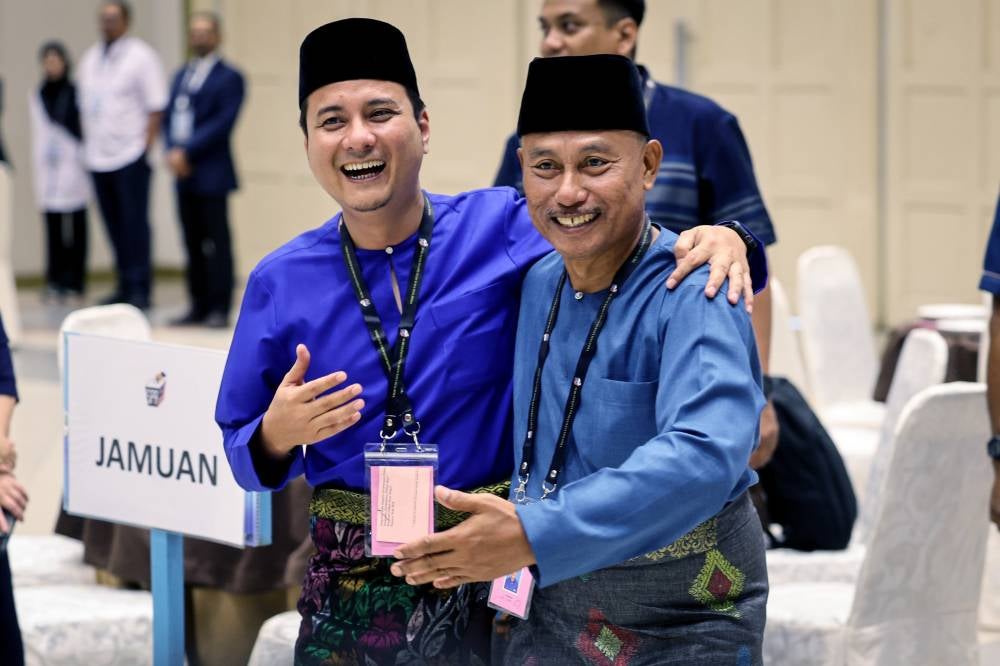Syed Hussein vs Haizan: What Mahkota voters want from their leaders
Observations from the first week since nomination day indicated that support for both BN and PN appears fairly balanced.

KLUANG - As the Mahkota by-election approaches, it is clear that this contest will be fiercely competitive, with over 60,000 registered voters and high stakes at play.
Early voting is set for Sept 24 with the main polling day on Sept 28.
This election features a two-cornered battle between Barisan Nasional's (BN) Syed Hussein Syed Abdullah, 40, and Perikatan Nasional's (PN) Mohamad Haizan Jaafar, 61. Both candidates bring their unique strengths, making the competition particularly close.
Observations from the first week since nomination day indicated that support for both BN and PN appears fairly balanced.
However, a significant portion of voters do not reside in Mahkota, and their participation on polling day could ultimately decide the outcome.
As a result, both sides are actively encouraging voters, especially those working in Singapore, to return home to cast their ballots.
Haizan, also known as coah Haizan, a respected figure in Kluang's sports community, particularly among athletes and the elderly, has earned admiration for his background as a coach.
In contrast, Syed Hussein, though younger, has deep roots in the area.
A native of Kluang, his family has a legacy of leadership, with his father and grandfather both being prominent figures.
Syed Hussein’s ability to communicate fluently in Chinese strengthens his rapport with Chinese voters, a crucial demographic in Mahkota.
This election presents an intriguing contrast in age and experience; while Syed Hussein's youth brings enthusiasm and energy, particularly appealing to voters seeking a fresh perspective, Haizan’s experience resonates with those valuing stability and experience.
Local discussions reveal a strong desire for a dynamic, young leader, yet both candidates face a challenging battle, with voters weighing the benefits of youthful energy against the wisdom that comes with experience.
The people of Mahkota are seeking leaders who can address their immediate needs.
For Syed Hussein, flood mitigation is a central priority.
He has committed to continuing riverbank fortification efforts initiated by former Mahkota assemblyman Sharifah Azizah, particularly in flood-prone areas like Taman Ilham.
This issue is significant for many residents, as flooding has long been a problem in Kluang despite previous state and federal interventions.
On the other hand, Haizan has centered his campaign on the high cost of living.
During his outreach, he has listened to local traders expressing how soaring prices for raw goods have hindered their ability to turn a profit.
His focus on the economic well-being of local businesses reverberated strongly with voters struggling to make ends meet.
What are the people saying?
Conversations with various residents in Mahkota revealed that local concerns are at the forefront of the election.
Mohd Haikal, a 29-year-old sales consultant stressed Kluang’s potential as a tourist destination, expressing hope that the new assemblyman could introduce more attractions to create job opportunities and revitalize the local economy.
"Kluang is a small and beautiful town. If we had more attractions, we could create job opportunities for locals. For me, this would be a win-win situation," he said.
Meanwhile, Komala Devi, a 46-year-old trader, urged the younger generation to seek better job opportunities.
Many youths, she noted, are compelled to work in Kuala Lumpur or Singapore for better wages.
"If quality jobs were available locally, they could stay with their families, reducing the outflow of talent from Kluang," she said.
She also expressed a desire for a livelier atmosphere in the town, particularly at night, as Kluang currently feels deserted once the sun sets.
Wong Yu Hui, a 34-year-old businesswoman, said that Kluang is a great place for business but hopes for more allowances or loans for local entrepreneurs.
She believes a thriving business environment would deter residents from seeking higher wages abroad, especially in Singapore.
This by-election is particularly crucial for BN, which is eager to demonstrate that its recent victory in the Nenggiri by-election was not a one-off success.
Johor has long been a BN stronghold, and Syed Hussein faces pressure to secure a win, especially as BN is part of the ruling government.
Failure to do so could signal challenges ahead for the party.
However, PN cannot be underestimated. Haizan's popularity among older residents and sports enthusiasts in Kluang provides him with a solid base of support.
The key question remains whether he can mobilise enough younger voters to counterbalance the institutional advantage BN enjoys in the state.
As Mahkota gears up for this pivotal election, one thing is clear: the outcome will significantly shape the political landscape of Kluang.
Both candidates have made their pitches to the electorate, and the choice now rests with the voters.
Whether they lean toward the prospect of youthful change under Syed Hussein or the steady hand of experience with Haizan, the Mahkota constituency is poised to decide its future direction.















